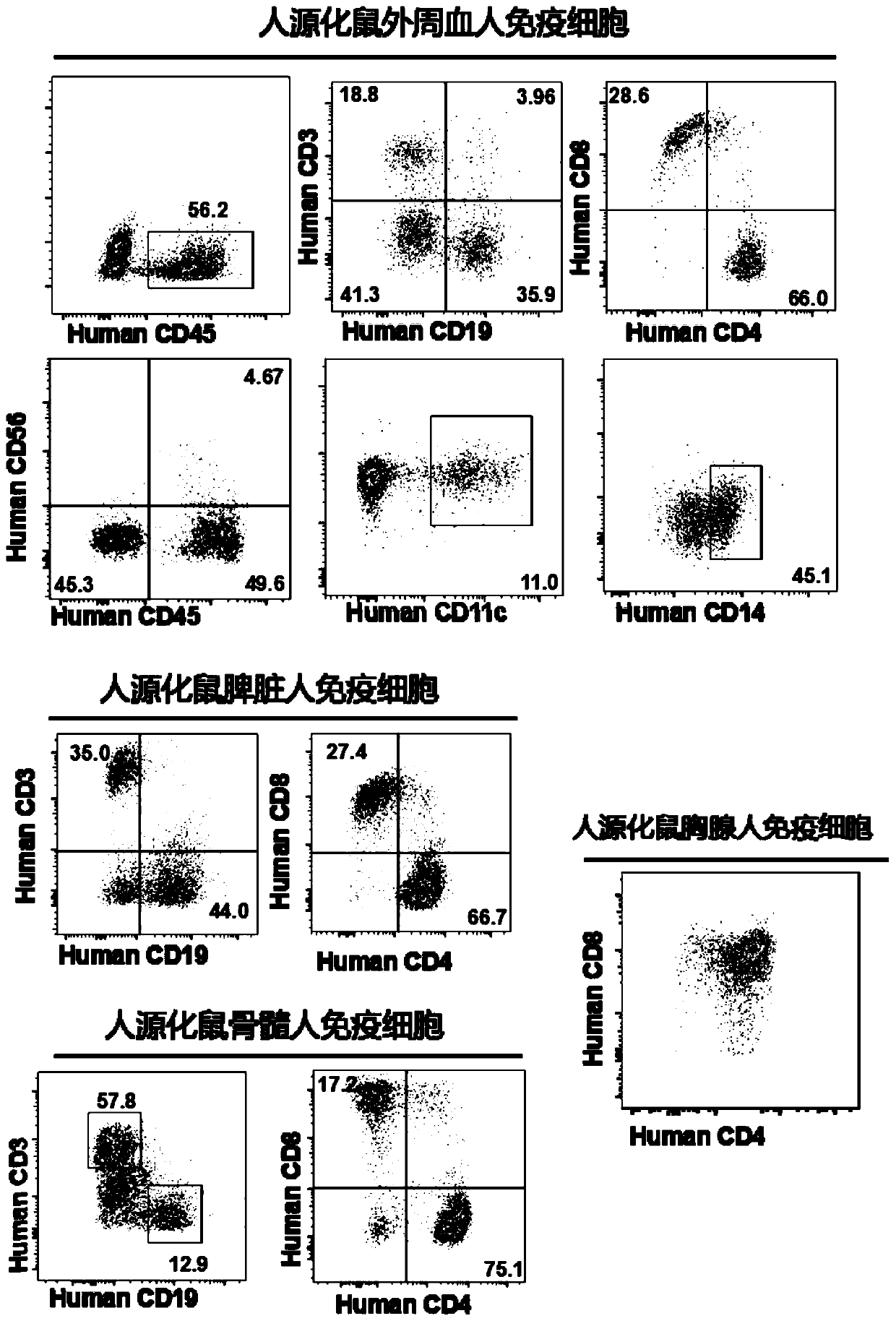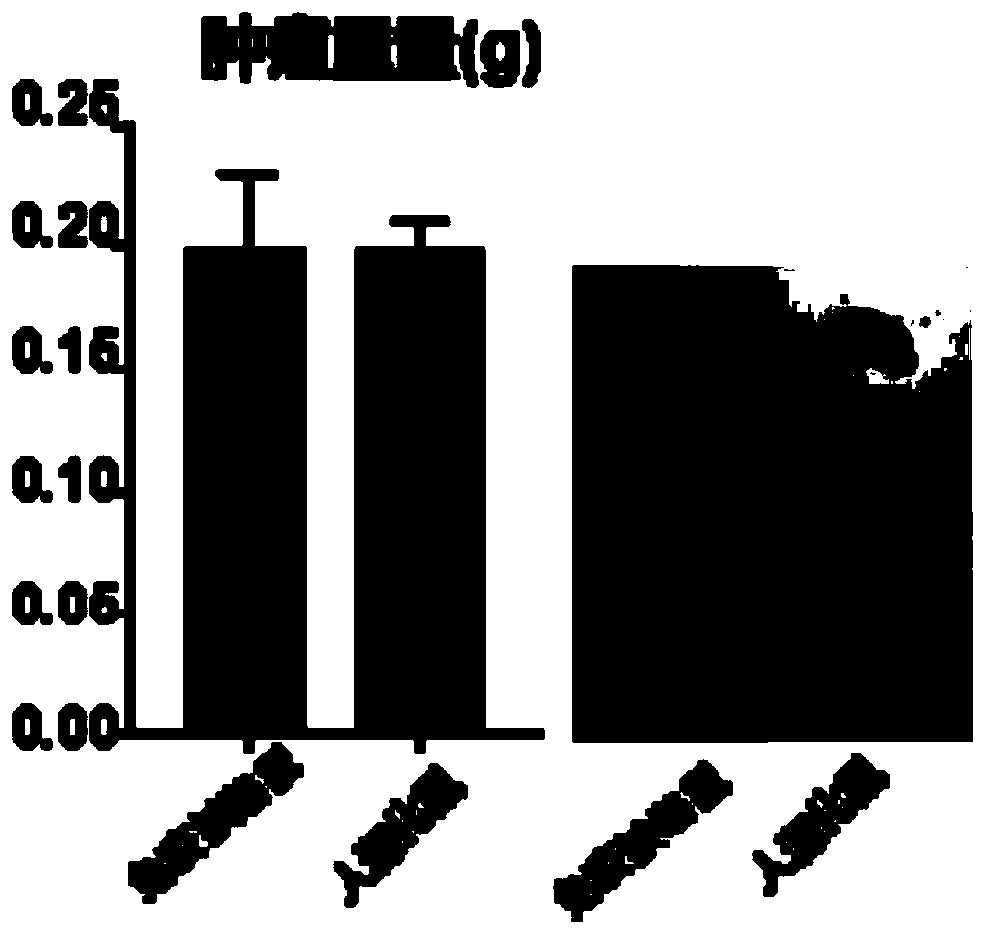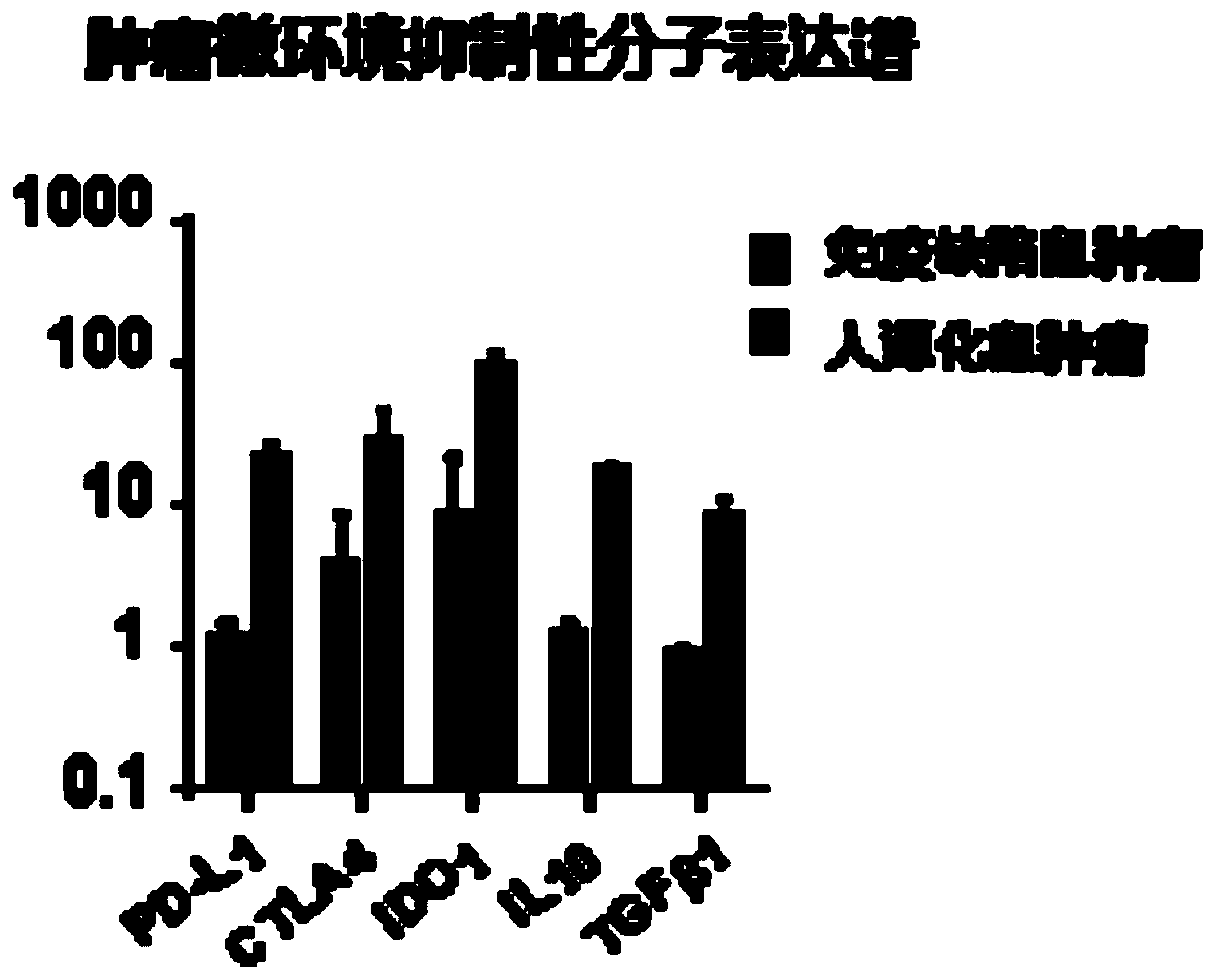Constructed humanized mouse tumor model and preparation method and application thereof
A mouse tumor model and humanized technology, applied in the field of biomedicine, can solve the problems of the application of humanized mouse solid tumor models that have not been reported yet, achieve scientific research benefits and economic benefits, maintain accessibility, and make up for singleness and the effect of model incompleteness
- Summary
- Abstract
- Description
- Claims
- Application Information
AI Technical Summary
Problems solved by technology
Method used
Image
Examples
Embodiment 1
[0035] 1. Construction of humanized mice with immune system
[0036] Immunodeficient mice aged 6-10 weeks were selected, and the mice were irradiated with sublethal doses (1.00-2.00Gy, 1Gy / min) of X-rays. After the mice were anesthetized, about 1m 3 Embryo-derived human thymus tissue (Advanced Bioscience Resources, USA) was implanted under the renal capsule, and after the mice woke up, 2-5×10 5 Syngeneic CD34+ human fetal liver hematopoietic stem cells (Advanced Bioscience Resources, USA) were fed for 8-10 weeks.
[0037] 2. Detection of human immune cells in peripheral blood
[0038] Take the venous blood of the mouse 8 weeks after operation in step 1, collect it in 5mM EDTA / PBS buffer, centrifuge to remove the supernatant, lyse the red blood cells with ACK buffer, use CD45, CD3, CD19, CD4, CD8, CD14, CD11c antibody was used for staining, and after incubation in the dark for 45 minutes, 500 microliters of flow loading buffer was used to resuspend the sample for flow analysi...
Embodiment 2
[0046] 1. Construction of humanized mouse tumor model and immunodeficiency mouse tumor model
[0047] Collect 5×10 5 H460 tumor cells were made into 100 microliters of single-cell PBS suspension, added 50 microliters of Matrigel, and transplanted into the mice in Example 1 and subcutaneously in immunodeficient mice to construct a humanized mouse tumor model and immunodeficiency mice. As for the mouse tumor model (as a control), the formation of tumors in the two model mice was observed. Three weeks after transplantation of tumor cells, the mice were sacrificed, and the tumors were photographed and analyzed.
[0048] 2. Detection of immune microenvironment in humanized mouse tumor model and immunodeficiency mouse tumor model
[0049] Add 500 microliters of TRIZOL reagent homogenate to the tumor tissue collected in the above step 2, place it on ice until it is completely lysed, centrifuge to remove the lysed part and cell debris, add 1 / 5 chloroform after taking the supernatant,...
Embodiment 3
[0059] Example 3 Construction of CD19-CAR-T cells
[0060] 1. Construction of tumor cells expressing antigen CD19
[0061] Get linearized 2.5ug human CD19 gene (its nucleotide sequence is shown in SEQ ID NO: 1) vector mixed with 5ulLipo2000 liposomes, transfected to H460 cells cultured in 6-well plate, 48 hours after transfection, The tumor cells were screened with 4ug / ml puromycin for one week, and the obtained monoclonal cells were identified by flow cytometry.
[0062] 2. Construction of CD19-CAR plasmid and T cells
[0063] Preparation method of CD19-CAR plasmid: The DNA sequence of CD19-CAR gene was biosynthesized by Guangzhou Aiji, the gene was amplified by polymerase chain reaction, and then the gene was connected to pLenti-EF1a-GFP by Gibson Assembly DNase ligation method In the lentiviral vector, replace the GFP gene sequence in the vector.
[0064] Take 20ug CD19-CAR lentiviral plasmid (the artificial chimeric protein sequence encoded by the CAR gene is shown in S...
PUM
 Login to View More
Login to View More Abstract
Description
Claims
Application Information
 Login to View More
Login to View More - R&D
- Intellectual Property
- Life Sciences
- Materials
- Tech Scout
- Unparalleled Data Quality
- Higher Quality Content
- 60% Fewer Hallucinations
Browse by: Latest US Patents, China's latest patents, Technical Efficacy Thesaurus, Application Domain, Technology Topic, Popular Technical Reports.
© 2025 PatSnap. All rights reserved.Legal|Privacy policy|Modern Slavery Act Transparency Statement|Sitemap|About US| Contact US: help@patsnap.com



